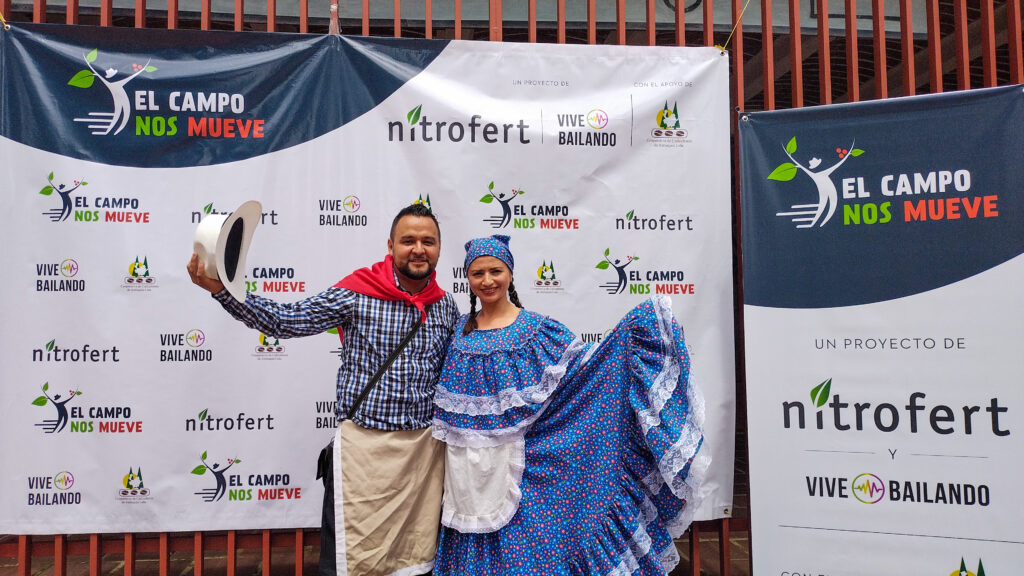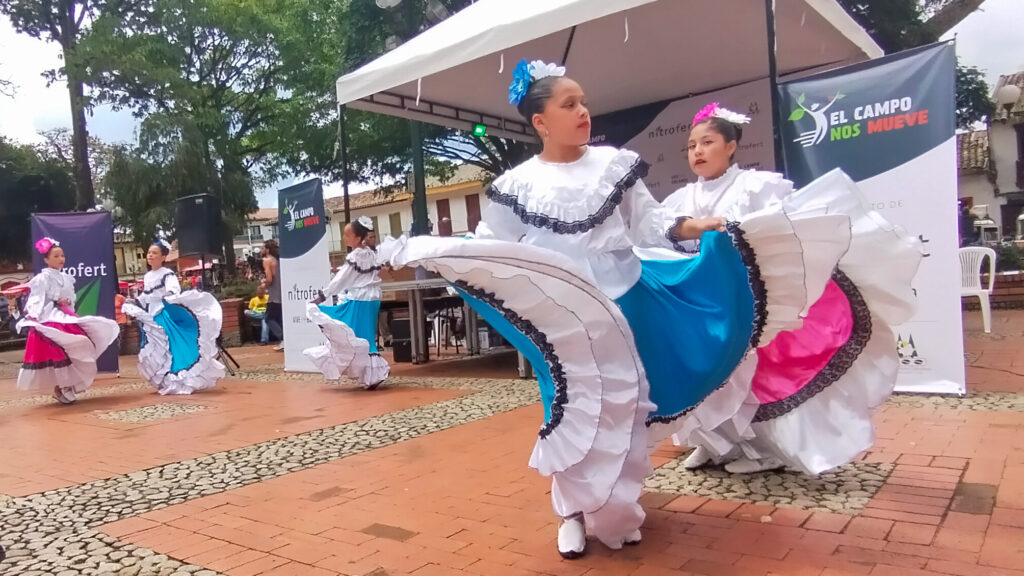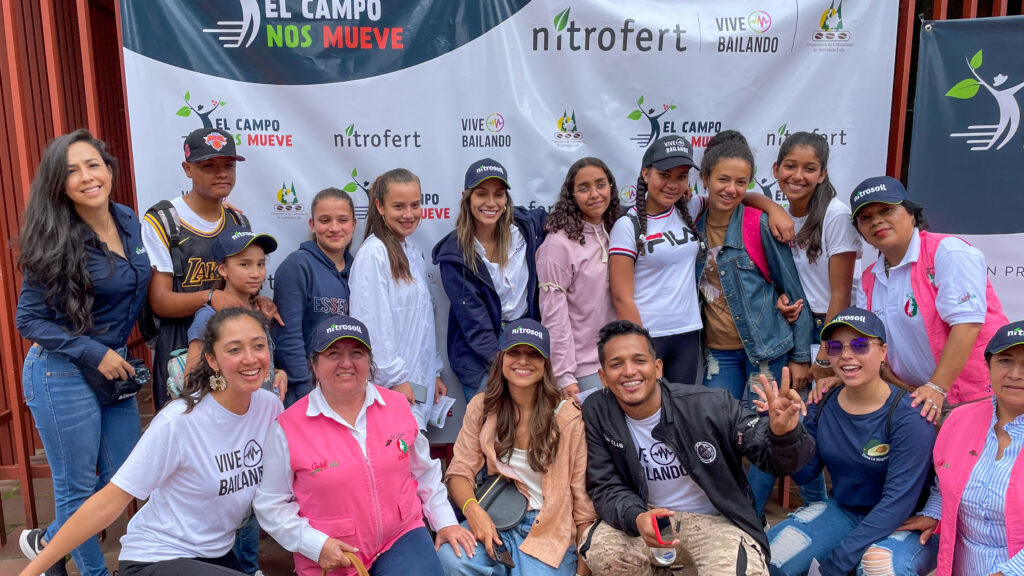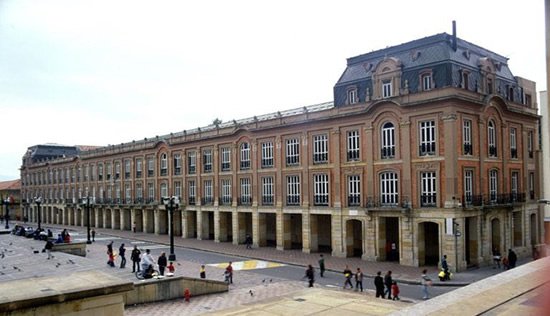
Manuela Acosta also contributed to this story.
Yesterday was National Coffee Day in Colombia. And coffee isn’t just a hot drink or a morning wake-up call for Colombians; it is an important aspect of the country’s identity and heritage. Coffee directly employs 26% of all agricultural workers, creating jobs, providing income to more than 550,000 families, and allowing for the development of the countryside.
However, the future of coffee is not as secure as we might have thought due to the aging population of farmers worldwide. In Colombia, farmers have an average age between 41 and 64 years old.
“El Campo Nos Mueve” or “The Countryside Moves Us” is a project led by Vive Bailando and Nitrofert, in collaboration with the Cooperativa de Caficultores de Antioquia, and the goal is to transform the lives of young coffee growers in the municipality of Jericó through dance.
The Bogotá Post sat down with the CEO of Vive Bailando, Clemencia Vargas, to talk about how dance and movement can promote self-esteem, help young people connect with their traditional roots, and encourage coffee culture.
Could you give us some context about Vive Bailando’s project “El Campo Nos Mueve” and how it came to be?
The project arose thanks to an alliance with Nitrofert, which sells fertilizers to the Cooperativa de Caficultores de Antioquia in Jericó. We chose this town in the south of Antioquia because the coffee growers from that region are committed to caring for the countryside and have a deep connection to coffee culture.
The project concentrates on passing down coffee traditions from generation to generation through dance: How is this possible? Talk us through the process.
Our methodology at Vive Bailando has been scientifically proven to integrate dance, body, and movement in an innovative way to facilitate community cohesion and build strong social relationships. Dance has the power to improve the self-esteem of participants and help them engage in activities that take them away from violent environments, promoting peace in rural territories. With over eight years of operating, we have proven this works.
All our social projects are guided by teams composed of a human development specialist and an artistic professional who work together to develop a plan tailored to the needs of the area. In the case of “El Campo Nos Mueve,” the project was created to encourage discussions about the cultural roots of the Colombian countryside.
In rural regions, some people reject urban culture. This project attempts to unite the traditional values of the countryside with modern urban practices through dance. Have you faced any obstacles?
Urban rhythms are widely recognized by young people across Colombia, regardless of the region. The only rejection we’ve experienced is from the adult population (the parents and grandparents of the participants in the project). However, our projects have an educational factor, and as an organization, we do not use music with explicit language but instead try to spread a message of positive transformation. Ultimately, the adults themselves end up falling in love with these genres when they get to know the essence of the project and the benefits it can bring to their children.

Vive Bailando has spoken about the connection between the sounds of the countryside and music. Could you dive deeper into this?
Vive Bailando brings dance to communities to transform the next generations. So, our project aims to connect the rhythms of the countryside, the sounds of nature, and farmers’ movements to the dances we teach the young people of Jericó.
We created a poem that reflects the unique characteristics of the coffee growers in this region and their relationship with nature’s sounds:
“The sound of raindrops falling on the ground,
The whistling of the wind swaying the trees,
The galloping of the horses,
Coffee cherries falling one on top of the other into the baskets during the harvest.
The shells of the beans splashing in the water as they are washed,
The beans crackling as they dry,
The shouts of joy from the family when the farmers come home with their baskets full.
These are the sounds of the countryside,
Sounds that move us,
The music that we carry within us,
Which connects us with our ancestors
And that keeps us going.
The countryside moves us,
Family moves us.”
How can NGOs continue to raise awareness about the importance of agriculture?
There are two essential elements to consider: The first is giving visibility to the faces of the coffee growers, both men and women, who work in the Colombian countryside daily. The second is making alliances with companies committed to developing life in the countryside for farmers and their families. Partnerships can help effectively communicate the importance of passing on farming practices from one generation to the next.

What can people do if they want to be part of this Vive Bailando project or future projects?
If you are a company looking to make a positive social impact through dance in a specific community, please reach out to us. If, on the other hand, you are a young person from an affected community, message us to see if we will be running projects in your area so you can sign up! As a foreigner, you can also follow us on social media to stay updated on the latest social initiatives in Colombia.
This interview was originally carried out in Spanish and has been translated and lightly edited.




